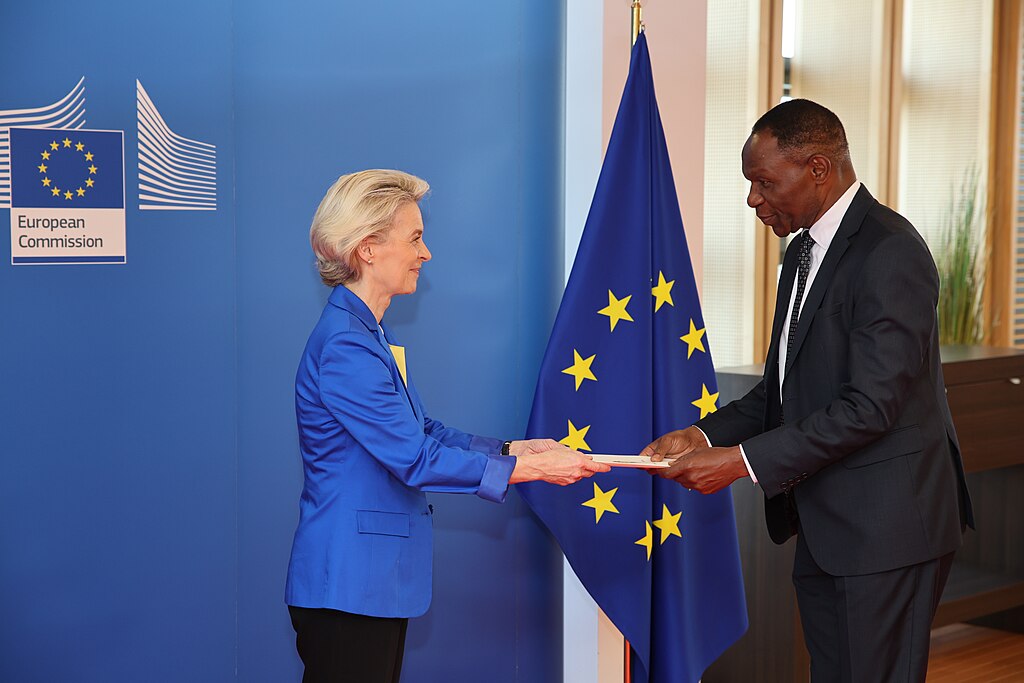Privacy for the Privileged
A Global Disparity in Data Protection
 Data Security by Blue Coat Photos licensed under CC BY-NC-ND 2.0.
Data Security by Blue Coat Photos licensed under CC BY-NC-ND 2.0.
Click here to accept cookies. Sound familiar? Most people encounter this message multiple times a day and mindlessly click “accept.” This seemingly simple action shapes how personal data is shared with websites. Yet, the majority of users lack a clear understanding of data privacy, its impact, and why protecting it matters. For some, this choice does not even exist in the first place. In many low-income countries, where data protections are weakest, individuals have little control over how their information is used or stored. The absence of strong privacy regulations in these regions exposes individuals to higher risks of exploitation, reinforcing social and economic inequalities. Addressing this disparity is key to ensuring the digital age works for everyone, not just those in wealthier nations.
The Promise and Pitfalls of Data
Data, at its core, is raw information taken and processed by computers. Once processed, this data can inform decisions, drive innovation, and benefit both consumers and companies by capturing consumer behaviour and delivering personalized insights through predictive analysis. However, its misuse poses significant risks, particularly in regions where legal protections for personal information are weak or nonexistent. Alarmingly, 15 percent of countries lack any data protection legislation, and all of these countries are classified as low-income. Resource constraints often force low-income countries to treat data privacy protections as just one issue among many pressing concerns, leading to governments neglecting data privacy protections in favor of more pressing concerns. Nonetheless, as data increasingly functions as a form of currency — a resource of immense value that drives innovation, economic growth, and decision-making — there is a pressing need to recognize data protection as a critical metric for development.
When data protection is absent, public and private entities can misuse data for their own gain. Governments may exploit personal information to monitor and suppress citizens through censorship or discriminatory practices. Data can aid in tracking online activity to identify and silence dissent, limit accessibility of services based on discriminatory profiling, and manipulate election outcomes through targeted disinformation campaigns. At the same time, private companies often collect and sell data without consent, exposing individuals to risks like identity theft, financial fraud, and invasive targeted advertising. Data exploitation is bidirectional, as governments can incentivize companies to gather data by offering them regulatory advantages while simultaneously pressuring them to share this data with government agencies under the guise of national security or public safety. Conversely, private companies can leverage their influence to lobby against stricter data protection laws, hindering government efforts to regulate data collection and use.

Barriers to Protection
Legislators have become increasingly eager to implement measures that protect their constituents’ privacy, as the potential for data misuse has pushed the issue of data privacy to the forefront of public policy discussions. Examples of some of the strictest data protection laws include the EU’s General Data Protection Regulation and the California Consumer Protection Act, which strive to minimize data collection, foster transparency, limit storage durations, and grant individuals the right to request the deletion of their personal information. However, effective enforcement of these protections requires access to critical resources, such as watchdog agencies dedicated to data monitoring, the authority to summon violators, and the capacity to impose meaningful consequences on those who violate the legislation, resources that are predominantly restricted to high-income countries.
In addition to a lack of resources to establish robust regulatory frameworks, low-income countries also face limited incentives to implement data protection laws. Nations outside larger regulatory entities, such as the EU, often face significant barriers to implementing data protection laws. Enacting such legislation can impose additional compliance burdens on businesses, discouraging them from expanding operations into these regions, negatively impacting local economies and isolating consumers. Companies must adapt their software to comply with each set of data privacy regulations, but the costs of compliance — particularly for smaller businesses — deter expansion into low-income countries, which stand to benefit the most from the innovation these companies bring.
Pathways to Global Cooperation
As low-income countries often lack the means and incentives to enforce data privacy regulations, cross-border data regulations present the best solution for ensuring the enforcement of data privacy regulations. However, for such frameworks to succeed, they must consider the normative understanding of data’s role within low-income countries to foster sustainable collaboration between governance and business. The needs and values of the local population must be considered to bridge the gap between cultural contexts and outside actors in promoting a balance of data usability with data privacy.
In an interview with Ambassador Bitange Ndemo, who served as the Permanent Secretary in Kenya’s Ministry of Information and Communication and now serves as Kenya’s Ambassador to Belgium, he emphasized that “Multilateral institutions can play a significant role in developing global data privacy, security, and ethics standards.” While many low-income countries view data protection as lower on the totem pole of priorities, the long-term implications of insufficient data privacy regulations should prompt the international community to take it more seriously as a key development factor. International organizations such as the United Nations must take the lead in pioneering standards of data privacy that are enforceable on the international level for the benefit of both consumers and providers.
International Organizations are positioned to set global norms and facilitate cooperation between nations with varying regulatory frameworks, which allows them to create universal standards that allow for “harmonize[d] policies, invest[ment] in cybersecurity, encourage[ment of] data portability” which can be implemented through risk-based approaches and international cooperation, allowing countries to “protect their national interests while reaping the benefits of connected digital world,” as outlined by Ambassador Ndemo.

Ambassador Ndemo also highlighted the need to “mandate digital literacy to spread the knowledge and skills required to use digital technologies effectively” to dismantle the existing digital divide that exacerbates the existing inequalities between individuals in high and low-income countries. Data can help expose inequalities, such as health, human rights, and access to clean water and food, allowing decision-makers to target where resources are most needed, connect those addressing inequalities, and aggregate information needed in identifying solutions. However, how this data is regulated impacts whether the data positively or negatively impacts these inequalities. Localized data can be valuable for development, as it provides tailored insights into the needs of individual communities, promoting specific and effective solutions rather than one-size-fits-all development strategies. For this data to be truly beneficial, involvement from both local consumers and implementers is required, demanding a certain level of digital literacy so that citizens can engage in discussions and make informed decisions about how data is used to address local challenges.
Data rights are considered fundamental rights and are a form of autonomy. However, the lack of robust data protection measures in low-income countries exacerbates existing social and economic inequalities. International organizations are key to providing universal protection and enforcing data privacy rights moving forward. Top-down programs meant to enforce and administer legislation paired with bottom-up education measures would begin to bridge the current gap. It is paramount that understanding of data privacy is considered at the forefront of digital literacy for all nations and individuals so that they can protect themselves from the dangers of the digital age while still having the privilege to live in it.
Feature Image: Data Security by Blue Coat Photos licensed under CC BY-NC-ND 2.0.
Edited By Rafay Ahmed
